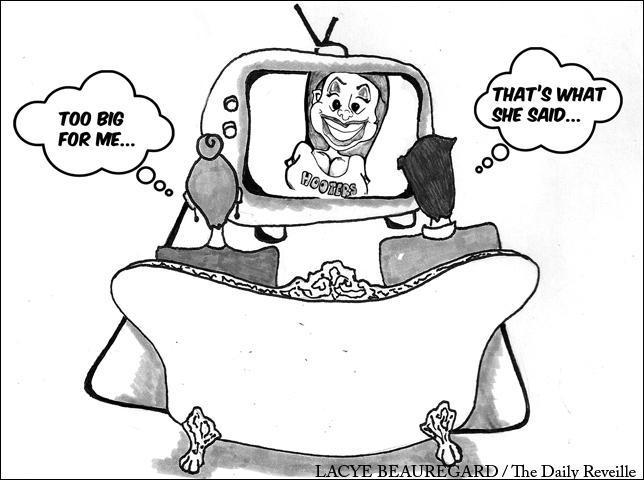As the saying goes, the news exists to report bad news. Sex is no exception.
What we see when the topic of sex comes up isn’t usually the most positive of news. Headlines flash the latest political sex scandal. Pornography is billed as addictive and harmful for individuals and relationships. Displaying parts of your sexuality elicits responses that one must be “dirty” or a “slut”.
Don’t get me started on how, apparently, having sex before marriage means you’re going to contract every sexually transmitted disease in the book and never find a partner who will love you for anything more than sex.
According to Dana Berkowitz, professor of sociology and women and gender’s studies, “Louisiana … tends to demonize and problematize sex, especially among young adults.” Students asked about the current sex culture used words like “irresponsible,” “degrading,” “unimportant” and “shameful.”
How did sex get such a bad rap?
People searching for or trying to maintain influence often use sexual repression as means of control. Many industries and groups are sustained monetarily by people believing their distortion of sexuality is the one we should strive to achieve.
They depend on us finding value in their definitions of beauty to sell their products — food, sexual images, clothing or shoes. The effect is that our culture has slowly whittled away at the definitions of physical beauty and sexual desirability to fit a small subpopulation.
Popular food chain Hooters sells large-breasted, small-waisted, scantily-clad women who always smile in the face of leering objectification. Fashion industry moguls such as Prada and Giorgio Armani sell tall, small-chested, small-waisted females as the ideal on their catwalks.
Dieting and fitness businesses ride these false standards’ coattails in an effort to keep you buying their low-cal, low-fat, sugar-free food and memberships to their facilities.
The change in societal standards of sexual desirability affects how we view sex and our own sexuality. People who don’t feel good about their bodies, because they don’t meet the standards perpetuated by these industries, don’t feel good about the things they do with their bodies.
As something we do with our bodies, sex loses its standing as a positive experience in our lives.
Many groups demonize a positive experience of sexuality as their way of exerting mental, social or emotional control. Religious sects tell us different sex acts are unnatural or not in accordance to their higher power’s greater plan.
Though experiencing slow change, many state and federal laws prohibit consenting adults from establishing legally binding relationships outside of heterosexuality and monogamy. Many places still have laws defining illegal sexual activity between two consenting adults, some of which are still actively used in court proceedings.
I can’t tell you that all aspects of sex are completely pristine, as there are dangerous, harmful things that can happen when dealing with sex. Disease, rape, assault, addiction and other problems do exist and need to be discussed and addressed.
We can’t afford the ad-nauseum discussion of negativity any more. No longer can we give power to these groups and industries, allowing them to center discussions and beliefs about sexuality around breast size, revealing clothing or “unnatural acts,” rather than love, pleasure, intimacy, enjoyment, laughter and exploration.
It’s time to take our bodies and our sexualities back into our own hands — literally and figuratively.
Every body is beautiful. Every consensual act of sex is a chance to have a wonderful experience, or — if it wasn’t good — to learn something about what does and doesn’t work for you.
There is nothing wrong with our sexual desires. Approaching sex with a healthy, positive attitude is a way to allow everyone to examine and engage their sexual desires in way that feels good to them. There is no right or wrong, as long as everyone involved is informed and consenting.
We cannot continue to let anyone else tell us what is acceptable for us to do with our bodies and in our bedrooms with consenting partners.
It’s time to shed the shame, and start looking at sex as a healthy, natural, positive experience.
Kristi Carnahan is a 25-year-old anthropology senior from West Monroe. Follow her on Twitter @TDR_KCarnahan.
—-
Contact Kristi Carnahan at [email protected].
Positively Carnal: Society focuses on negative aspects of sex
January 24, 2012







